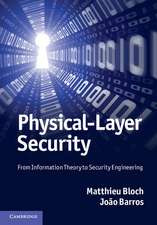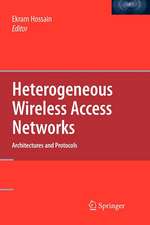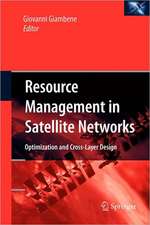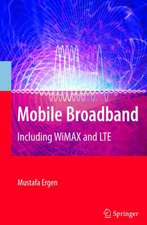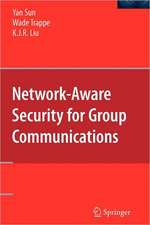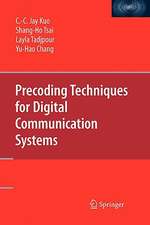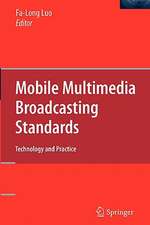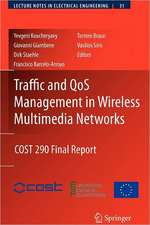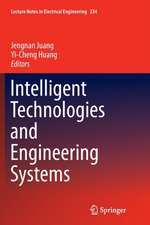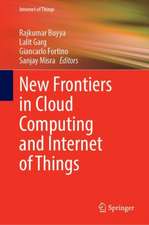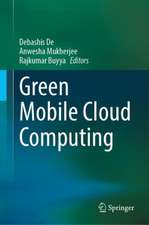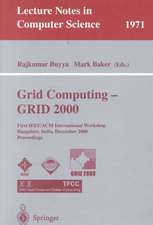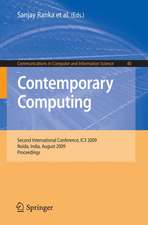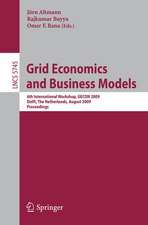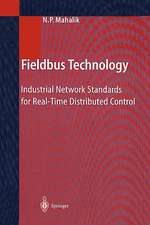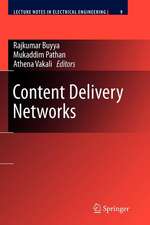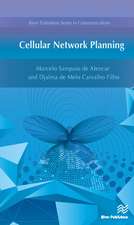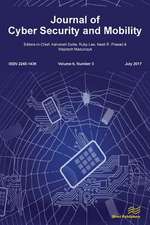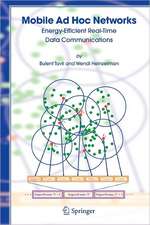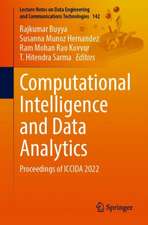Internet of Things: Principles and Paradigms
Editat de Rajkumar Buyya, Amir Vahid Dastjerdien Limba Engleză Paperback – 9 mai 2016
To help realize the full potential of IoT, the book addresses its numerous challenges and develops the conceptual and technological solutions for tackling them. These challenges include the development of scalable architecture, moving from closed systems to open systems, designing interaction protocols, autonomic management, and the privacy and ethical issues around data sensing, storage, and processing.
- Addresses the main concepts and features of the IoT paradigm
- Describes different architectures for managing IoT platforms
- Provides insight on trust, security, and privacy in IoT environments
- Describes data management techniques applied to the IoT environment
- Examines the key enablers and solutions to enable practical IoT systems
- Looks at the key developments that support next generation IoT platforms
- Includes input from expert contributors from both academia and industry on building and deploying IoT platforms and applications
Preț: 430.29 lei
Preț vechi: 467.71 lei
-8% Nou
82.33€ • 86.20$ • 68.13£
Carte tipărită la comandă
Livrare economică 29 martie-12 aprilie
Specificații
ISBN-10: 012805395X
Pagini: 378
Dimensiuni: 191 x 235 x 20 mm
Greutate: 0.82 kg
Editura: ELSEVIER SCIENCE
Cuprins
Part I: IoT Ecosystem Concepts and Architectures 1. Internet of Things: An Overview 2. Open Source Semantic Web Infrastructure for Managing IoT Resources in the Cloud 3. Device/Cloud Collaboration Framework for Intelligence Applications 4. Fog Computing: Principals, Architectures, and Applications
Part II: IoT Enablers and Solutions 5. Programming Frameworks for Internet of Things 6. Virtualization on Embedded Boards as Enabling Technology for the Cloud of Things 7. Micro Virtual Machines (MicroVMs) for Cloud Assisted Cyber-Physical Systems (CPS)
Part III: IoT Data and Knowledge Management 8. Stream Processing in IoT: Foundations, State-of-the-art, and Future Directions 9. A Framework for Distributed Data Analysis for IoT
Part IV: IoT Reliability, Security and Privacy 10. Security and Privacy in the Internet of Things: A Survey 11. Internet of Things- Robustness and Reliability 12. Governing Internet of Things: Issues, Approaches and New Paradigms 13. TinyTO: Two way Authentication for Constraint Devices in the Internet of Things 14. Obfuscation and Diversification for Securing the Internet of Things (IoT)
Part V: IoT Applications 15. Applied Internet of Things 16. Internet of Vehicles and Applications 17. Cloud-Based Smart Facility Management
Descriere
Internet of Things: Principles and Paradigms captures the state-of-the-art research in Internet of Things, its applications, architectures, and technologies. The book identifies potential future directions and technologies that facilitate insight into numerous scientific, business, and consumer applications. The Internet of Things (IoT) paradigm promises to make any electronic devices part of the Internet environment. This new paradigm opens the doors to new innovations and interactions between people and things that will enhance the quality of life and utilization of scarce resources.
To help realize the full potential of IoT, the book addresses its numerous challenges and develops the conceptual and technological solutions for tackling them. These challenges include the development of scalable architecture, moving from closed systems to open systems, designing interaction protocols, autonomic management, and the privacy and ethical issues around data sensing, storage, and processing.
- Addresses the main concepts and features of the IoT paradigm
- Describes different architectures for managing IoT platforms
- Provides insight on trust, security, and privacy in IoT environments
- Describes data management techniques applied to the IoT environment
- Examines the key enablers and solutions to enable practical IoT systems
- Looks at the key developments that support next generation IoT platforms
- Includes input from expert contributors from both academia and industry on building and deploying IoT platforms and applications



